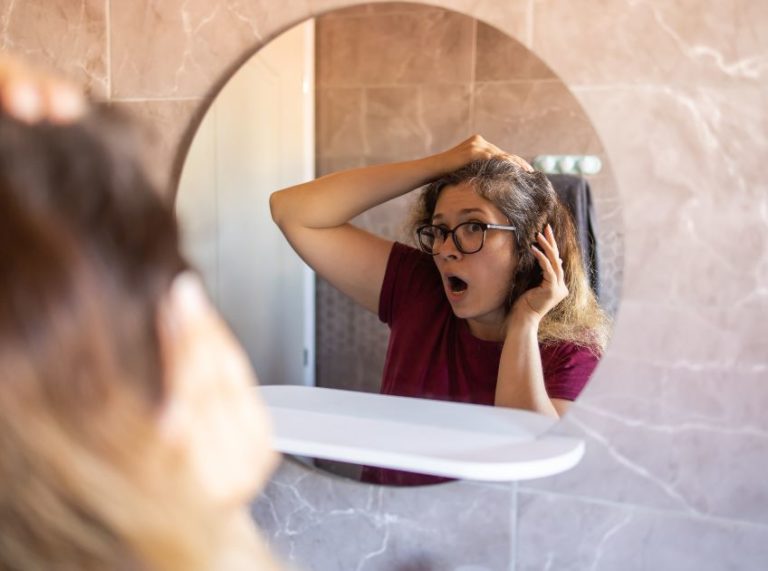
Important: This article is for informational purposes only. Please read our full disclaimer for more details.
Dealing with hair fall, an itchy scalp, or thinning strands that seem to worsen with every wash? You’re not alone. Many are turning to traditional, plant-powered remedies—and clove (1) is emerging as a powerful ingredient for revitalizing both hair and scalp. Packed with antioxidants, antimicrobials, and circulation-boosting compounds, clove is more than just a spice—it’s a natural hair treatment with real benefits.
One of the key components in clove is eugenol (2), a bioactive compound shown to improve blood circulation and fight microbial buildup on the scalp. A 2021 Journal of Natural Medicines study highlighted eugenol’s potential in strengthening hair fibers and promoting scalp health (3). In pomade form, clove becomes a versatile treatment that conditions, protects, and encourages growth—all in one.
Why Clove Pomade is Worth the DIY Effort
What makes it so effective? It’s all in the ingredients.
- Eugenol (from clove) – A potent antioxidant and anti-inflammatory agent that improves scalp circulation, helping follicles grow stronger and faster (3).
- Shea Butter – Deeply moisturizing and rich in fatty acids, it seals in hydration and protects hair from breakage (4).
- Castor Oil – Known for its ricinoleic acid content, it promotes hair density and reduces thinning.
- Vitamin E – Supports scalp repair and reduces oxidative stress on hair strands (5).
Key Benefits:
- Promotes faster, healthier growth
- Reduces itchiness and dandruff
- Strengthens brittle, weak strands
- Adds natural shine and softness
- Acts as a barrier against damage from heat or environmental stressors
Is Clove Pomade Safe for All Hair Types?
Generally, yes—but it must be used wisely. Clove oil (6) is highly concentrated and should always be diluted with carrier oils or butters.
Here’s how to stay safe:
- Perform a patch test before full application.
- Use only 2–3 times per week to avoid buildup or scalp sensitivity.
- Discontinue use if you experience:
- Redness
- Burning sensation
- Excessive dryness or scalp peeling
How to Use It for Best Results
- Warm a small amount between your palms and apply directly to the scalp and ends.
- Gently massage to stimulate circulation.
- Can be used as an overnight treatment or left in for a few hours before shampooing.
- Suitable for natural, transitioning, and relaxed hair types.
- Adjust the amount based on hair texture, density, and oil tolerance.
Best DIY Clove Pomade Recipes
1. Deep Nourish Clove & Shea Butter Pomade
Ideal for dry, brittle hair needing shine and strength.
Ingredients
- 2 tbsp ground cloves
- ½ cup shea butter
- 2 tbsp coconut oil
- 1 tsp vitamin E oil
Directions
- Melt shea butter and coconut oil over low heat.
- Stir in ground cloves; let infuse for 5 minutes.
- Cool and strain the mixture.
- Add vitamin E oil, mix well, and transfer to a jar.
- Use on scalp and hair ends 2–3 times a week.
Customization Tip: For oily hair, reduce coconut oil to 1 tbsp or skip altogether.
2. Scalp Stimulating Clove & Castor Oil Pomade
Best for thinning hair and slow growth.
Ingredients
- 1 tbsp clove powder
- ¼ cup castor oil
- 2 tbsp beeswax
- 4 drops rosemary essential oil
Directions
- Heat castor oil and beeswax until fully melted.
- Mix in clove powder and rosemary oil.
- Cool slightly, then pour into a clean container.
- Apply directly to the scalp and massage. Use 2–3 times per week.
Customization Tip: Add more beeswax if you prefer a firmer hold or reduce it for a creamier texture.
Frequently Asked Questions (FAQ’S)
1. Can I use clove pomade every day?
A. No—it’s best used 2–3 times weekly to avoid buildup and allow the scalp time to absorb nutrients.
2. How long does it last once made?
A. Stored in a clean, airtight container in a cool place, DIY pomade lasts up to 2 months.
3. Is clove effective against dandruff?
A. Yes. Its antifungal and antibacterial properties can help reduce dandruff and balance scalp health.
Final Thoughts
If you’re seeking a natural way to nourish your scalp, fight breakage, and restore hair strength, DIY clove pomade might be the answer. With the science-backed benefits of eugenol and nourishing oils, it offers a potent solution without harsh chemicals.
Be mindful of how your scalp responds, and always adjust the recipe to your needs. Whether you want moisture, volume, or growth support—this homemade blend puts the power back in your hands.















